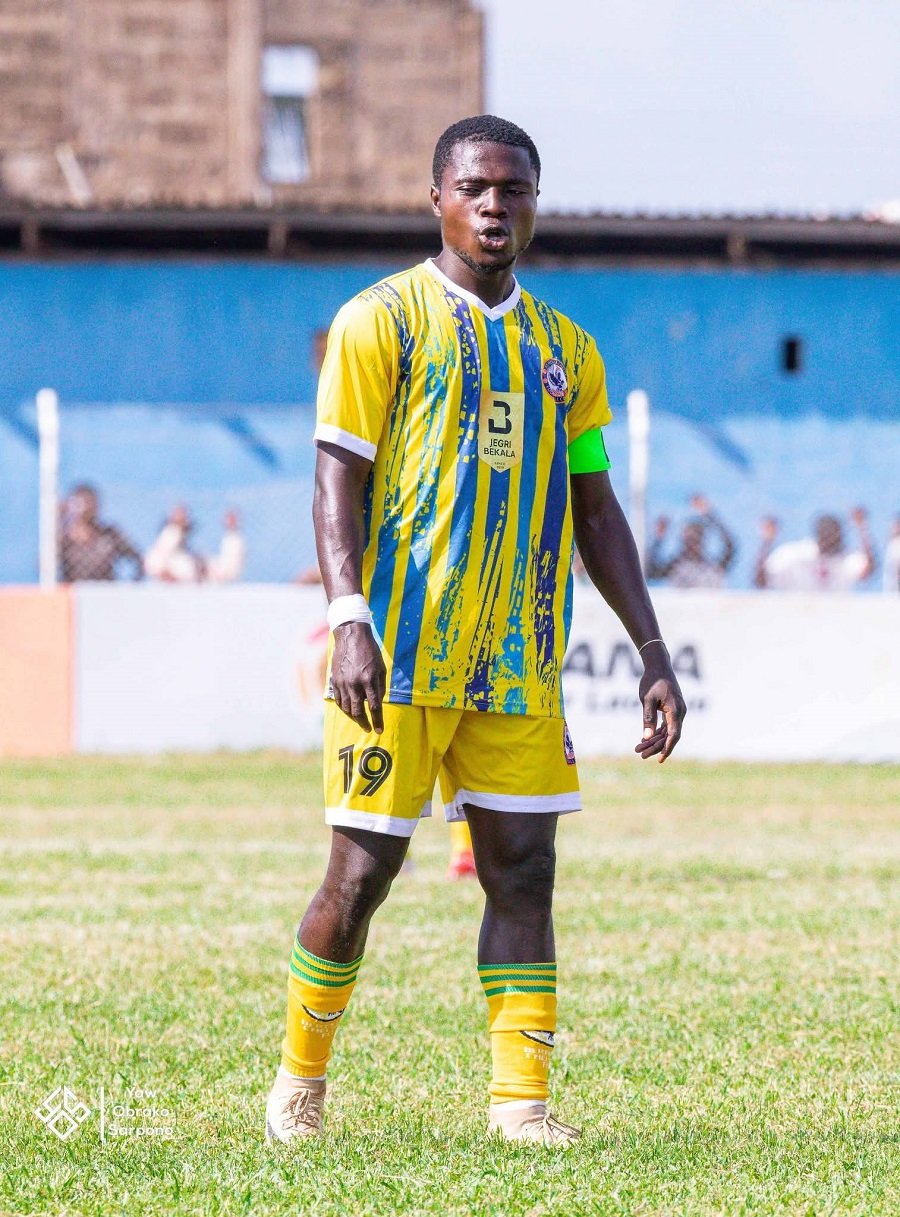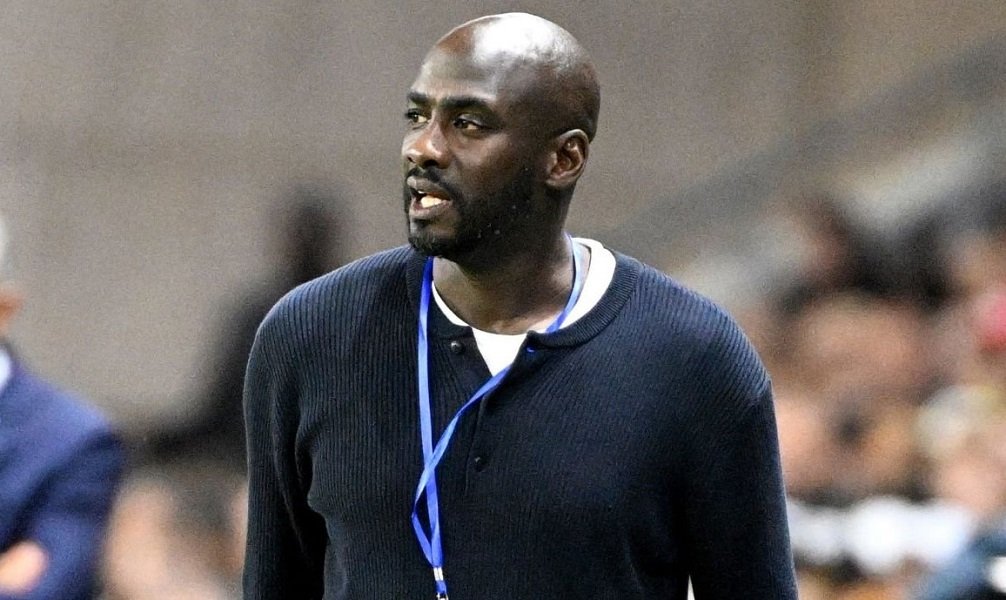Sports
Let’s end the joke with sports

Identifying and writing about the problems bedeviling Ghana sports has become one hell of a task for a number of industry workers.
Talking or writing about them creates a feeling of laziness because one sounds monotonous or repetitive; this is because the problems or concerns expressed for the past years are same as those hunting us now.
And it looks as if no one cares about addressing these concerns and because they are seasonal, it is assumed that the noise will stop with time.
With writers and commentators, theytend to give up at the risk of being labeled political dogs hunting officials or a government in power; forgetting that those problems transcends respective governments.
This season of the Olympic Games has exposed us once again, bringing to the fore teething problems that must be addressed once and for all, and since it is about athletics, it has generated all the debate.
It is true Ghana presented one of the smallest teams at the festival because of qualification struggles, affecting psyche and morale of Ghanaians ahead of the competition.
However, there is every reason to be disappointed about the way our campaign ended, knowing that with the right preparations, the team could have done better.
The two swimmers exited after their respective first heats but Benjamin Azamati and Abdul-Rasheed Saminu momentarily made Ghanaians happy after placing second and third respectively in their heats.
In the subsequent heats, Azamati placed last (ninth) with Saminu ending in seventh position to end their campaigns in the Men 100m event.
The biggest heartbreak was the performance of Rose Amoaniwaa Yeboah in female high jump.
Talking of an athlete who joined the University of Illinois for the 2023/24 collegiate season and won the American National Collegiate Athletics Association (NCAA) outdoor high jump national title with a 1.97m jump, her poor performance at the meet beats the imagination of many.
No wonder, report from the team’s camp suggested she was left broken.
That raises question marks about the kind of preparation athletes gets before participating in such championships.
This is an athlete that can easily be compared to the current kid on the block, Julien Alfred, from St Lucia who silenced the supposed ‘owners’ of female sprints.
From a country without athletics tracks and other equipment, she travelled to Jamaica on scholarship and continued to the States under similar circumstances as Amoaniwaa got the same platform and showed their skills.
What separates the two is the support for Julien from the state of St. Lucia and the non-existent support from Ghana for Amoaniwaa.
Julien travels around with a diplomatic passport and enjoys regular budgetary support from the tiny Saint Lucia island country of the West Indies in the eastern Caribbean.
With this support, Julien is able to participate in some of the major championships around the world that allows her to compete with top athletes.
With this exposure, she will not crumble under the pressure of performing in front of the mammoth crowd that watched the athletics event at the Olympics.
The problem of Azamati and others who have performed under the flag of Ghana is not so different from Amoaniwaa’sfunding.
One thing has become limpidly clear is that these Ghanaian athletes that travel on scholarships perform at their optimum best when they are in school because they get the chance to participate in the NCAA championships.
They also get the chance to train with the best facilities and under some of the finest coaches around.
But all those privileges would cease the moment they graduate and have to keep their careers going on their own. In such instances, these athletes would have to start work to fend for themselves and in so doing, it begins to affect their performances.
At this crucial stages, what they need to stay competitive is a kind of support from the government, if indeedit considers sports as one of its priorities.
Politicians have spoken on sports as a tool for unity and a job creation avenue but over the years, it has proven to be a mere gimmick because they are just not committed to it.
Otherwise why would such pertinent problems rear the head at every international competition but nothing is done about it.
It beats one’s imagination when athletes even wait for longer periods to receive per diems for competitions. They don’t also get support as training allowances and are left on their own regarding participation in major championships.
In spite of this, Sports Ministers and government officialsmuster the moral right to urge them to win medals to raise the flag of Ghana.
How can these athletes perform to raise Ghana’s flaghigh on the world stage when some have to drive Uber and train in the afternoon or sell Ice Cream and hit the gym in the afternoon? It is time to sit up as a country and seek a better understanding of sports administration if indeed we want to reap the full benefits of it.
By Andrew Nortey
Sports
Chelsea Host Hearts in Berekum

Attention will be at the Golden City Park in Berekum tomorrow as Hearts of Oak lock horns with Berekum Chelsea FC in a Ghana Premier League Matchday 6 game that promises an electrifying atmosphere.
Lying sixth on the league table with two wins and three draws, the Phobians visit a ground that has been favourable to them in recent times. In their last three visits to the Golden City Park, Hearts have amassed seven out of nine points, putting them in strong contention to win.
Head Coach Mas-Ud Didi Dramani says, “The team is making progress in its tactical identity despite the lack of goals, and this is something we are working on ahead of this game.”
Hearts will come face-to-face with former coach Samuel Boadu, whose side lies a distant 13th on the league table with a win and a draw from four games. Coach Boadu is yet to celebrate a victory over the Phobians since joining the Berekum lads and would hope this fixture marks a turnaround.
Ninth-placed Vision FC would trek to the Nana Fosu Gyeabour Park in Bechem to play Bechem United, while new boys Hohoe United host Aduana FC at the Hohoe Sports Stadium.
Returnees Swedru All Blacks will welcome Basake Holy Stars to the Swedru Sports Stadium, with defending league champions Bibiani Gold Stars staying put at their backyard, the Dun’s Park, to welcome second-placed Heart of Lions FC on Monday.
Today at the TnA Stadium in Tarkwa, Medeama SC will clash with Samartex FC in a Western derby. Other games scheduled for today would see Eleven Wonders FC host Karela United at the Swedru Sports Stadium, while Dreams FC face Nations FC at the Tuba Astro Turf.
By Raymond Ackumey
Join our WhatsApp Channel now!
https://whatsapp.com/channel/0029VbBElzjInlqHhl1aTU27
Sports
How Otto Addo Turned Critics Into Fans (1)

Ghana coach Otto Addo may not command the kind of fear and respect like Pep Guardiola, Jose Mourinho, Carlo Ancelotti, Luis Enrique and others in the modern game, but in his small corner, he is gradually climbing the ladder to greatness in Ghana, Africa and the world at large.
The aforementioned coaches attained greatness with club sides and, therefore, open an argument over whether one is not comparing apples to oranges. But no matter how one looks at it, they are all coaches harbouring similar ambitions to attain greatness in their fields.
Otto Addo is one of the young and upcoming coaches holding a lot of promise and was getting experience with his association with Borussia Dortmund in Germany until his path was directed by a Ghana call.
Although he was born in Germany, Otto Addo’s association with Ghana football dates back to 1999, spanning a period of about seven years; commencing with a 5–0 rout of Eritrea on February 28. He gained international prominence when he joined the squad for the 2000 African Cup of Nations. He featured as a midfielder in the team for the 2006 FIFA World Cup.
But like it’s often said, a prophet is not recognised in his own home and his efforts partially went unnoticed. He’ll go into the annals as one of the Black Stars coaches to have been fairly or otherwise criticised not just by ‘football people’ but fans who doubted him.
His sack has been discussed at various platforms by people whose knowledge and tactical acumen about the game remains questionable. Ghana’s Minister for Sports and Recreation, Mr Kofi Adams, at one point openly stated his doubts over Otto Addo’s ability to actually deliver.
No coach would feel secured in such turbulent times, but coach Otto Addo kept his calm and composure. On the corridors of his employers, however, the Ghana Football Association (GFA) president, Kurt Okraku, openly rallied support for him, though a few ‘doubting Thomases’ still questioned his credentials.
That painted a picture of a people that forget easily and are quick to crucify. In a brief moment of adversity, Ghanaians forgot how Otto Addo was brought in to pluck qualification for the Qatar 2022 FIFA World Cup from the jaws of the Super Eagles of Nigeria with a solitary goal over two legs.
The upshot of that feat was not one any Nigerian would want to remember. The scenes after the match were awfully chaotic, as fans vented their anger on facilities at the stadium. Back in Ghana, it was partying all night and day.
Otto Addo was labeled the football magician. He achieved something no Ghanaian coach had ever accomplished; a feat which Ghana with her all-time best teams could not attain. That was the climax to which Otto Addo took Ghana football, generating calls to start believing in the Ghanaian coach.
Following that to the World Cup proper was another story altogether. It was, or may have been, our poorest show at any of the four World Cup appearances. And just as it was stipulated in his contract, he bowed out after the Qatar World Cup to mind his Borussia Dortmund business with peace.
But as fate would have it, nature found a way to renew his romance with Ghana football after an unconvincing start to the America, Canada and Mexico dream World Cup under special advisor turned coach, Chris Hughton.
Ghana started the qualifiers on a winning note but not a convincing performance. It was saved by an Inaki Williams goal scored on the sixth minute of additional time against Madagascar at the Baba Yara Sports Stadium. The Black Stars then slumped to a 1-0 defeat at the Stade de Moroni to Comoros to heighten calls for a new technical direction.
Then stepped in Otto Addo when Ghana occupied the fourth position in Group I with three points but with the countries in the group evenly matched.
By Andrew Nortey






